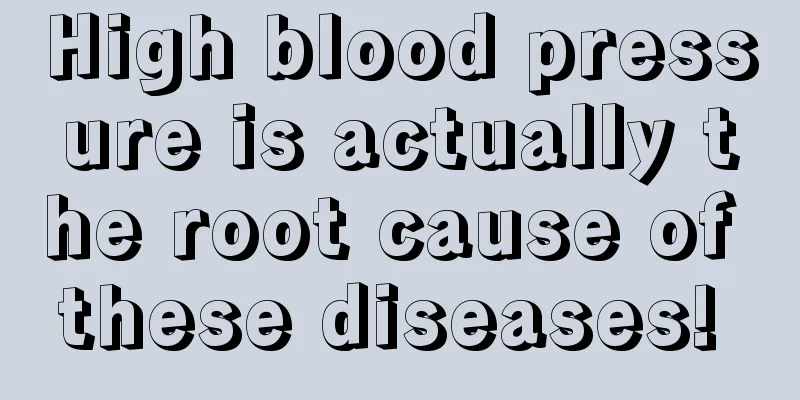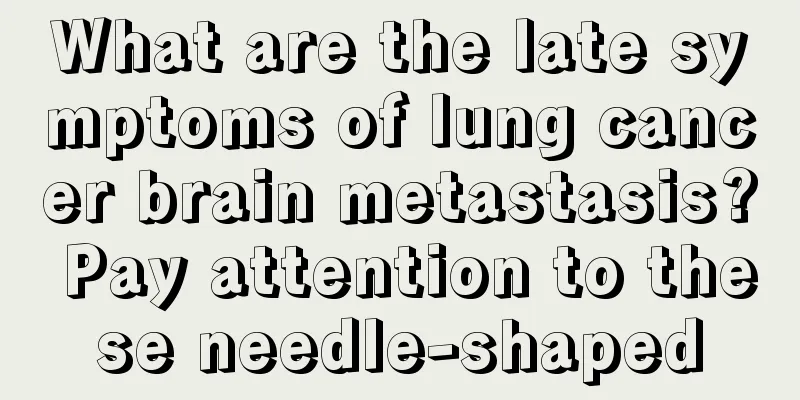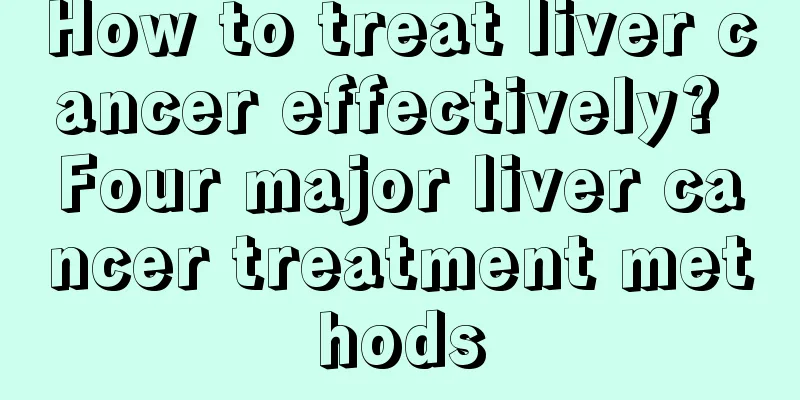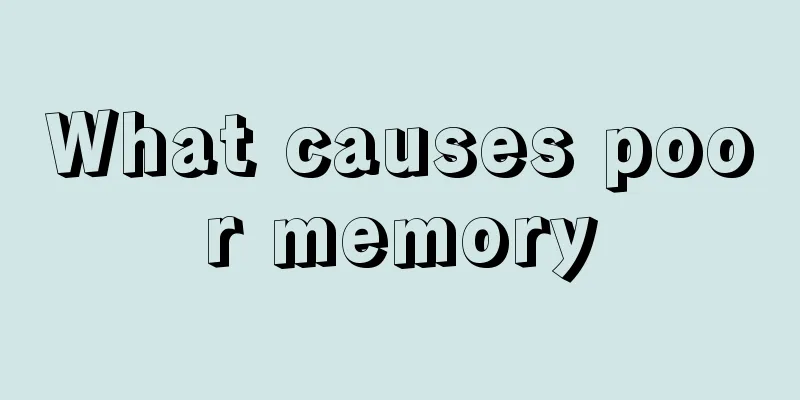High blood pressure is actually the root cause of these diseases!

|
There are many causes of high blood pressure. Studies have found that this is closely related to the patient's bad eating habits. If it is not effectively improved, it will also cause many complications, such as coronary heart disease, cerebrovascular disease, hypertensive heart disease, hypertensive encephalopathy, chronic renal failure, hypertensive crisis, etc., which are extremely common and extremely harmful, and may even be life-threatening. Therefore, once you find yourself with symptoms of high blood pressure, you must deal with it in time. First of all, start with your diet, mainly eat a light diet, and insist on proper physical exercise. 1. Coronary heart disease Long-term hypertension can promote the formation and development of atherosclerosis. Coronary atherosclerosis can block or narrow the blood vessel lumen, or cause myocardial ischemia, hypoxia, and necrosis due to functional changes in the coronary arteries, leading to coronary heart disease. Coronary atherosclerotic heart disease is the most common type of organ disease caused by atherosclerosis and is also a common disease that seriously endangers human health. 2. Cerebrovascular disease Includes cerebral hemorrhage, cerebral thrombosis, cerebral infarction, and transient ischemic attack. Cerebrovascular accident, also known as stroke, is a severe disease with a very high mortality rate. Even if it does not cause death, most cases will cause disability. It is the most severe type of acute cerebrovascular disease. The higher the blood pressure of a hypertensive patient, the higher the incidence of stroke. If the cerebral arteries of a patient with hypertension harden to a certain degree, coupled with temporary excitement or excessive excitement, such as anger, a sudden accident, strenuous exercise, etc., the blood pressure will rise sharply, the cerebral blood vessels will rupture and bleed, and the blood will overflow into the brain tissue around the blood vessels. At this time, the patient will immediately fall into a coma and fall to the ground, so it is commonly known as a stroke. 3. Hypertensive heart disease The cardiac changes in patients with hypertension are mainly left ventricular hypertrophy and enlargement, myocardial cell hypertrophy and interstitial fibrosis. High blood pressure causes the heart to thicken and enlarge, a condition called hypertensive heart disease. Hypertensive heart disease is an inevitable trend when high blood pressure is not controlled for a long time. It may eventually affect life safety due to cardiac hypertrophy, arrhythmia, or heart failure. 4. Hypertensive encephalopathy It mainly occurs in patients with severe hypertension. Because the high blood pressure exceeds the automatic regulation range of cerebral blood flow, the brain tissue suffers from excessive blood perfusion, causing cerebral edema. Clinically, it is characterized by symptoms and signs of encephalopathy, manifested as diffuse severe headache, vomiting, impaired consciousness, mental confusion, and even coma and convulsions in severe cases. 5. Chronic renal failure Damage to the kidneys caused by hypertension is a serious complication, among which hypertension combined with renal failure accounts for about 10%. Hypertension and kidney damage can affect each other, forming a vicious cycle. On the one hand, hypertension causes kidney damage; on the other hand, kidney damage can aggravate hypertension. Generally, in the middle and late stages of hypertension, the renal arterioles become hardened, renal blood flow decreases, and the kidney's ability to concentrate urine decreases. At this time, polyuria and increased nocturia will occur. Rapidly developing hypertension can cause extensive renal arteriolar diffuse lesions, leading to malignant renal arteriolar sclerosis, which can rapidly develop into uremia. 6. Hypertensive crisis Hypertensive crisis can occur in both the early and late stages of hypertension. Factors such as tension, fatigue, cold, and sudden discontinuation of antihypertensive drugs can cause severe spasms of the arterioles, leading to a sharp rise in blood pressure. When a hypertensive crisis occurs, serious symptoms such as headache, irritability, dizziness, nausea, vomiting, palpitations, shortness of breath, and blurred vision may occur. |
<<: What are the sequelae after a craniotomy in a car accident?
>>: How to treat bronchial obstruction
Recommend
How to treat cervical stiffness?
Cervical spondylosis, also known as cervical arth...
Can bath salts be used every day?
Now there is a new bath health product on the mark...
The medical effects of walnut wood that most people don’t know about
Walnut wood is the wood cut from walnut trees. It...
How much does it cost to diagnose fibroids
How much does it cost to diagnose fibroids? Altho...
Why do fingers go numb? These diseases are the most common
Sometimes you may find your fingers are numb. In ...
Side effects of oxygen inhalation
When we visit patients, especially those who have...
Can colon cancer be completely cured
Can colon cancer be completely cured? I believe t...
What are the disadvantages of using air conditioning in summer
In the hot summer, people are suffocated by the s...
Nursing measures to prevent gallbladder cancer from worsening
When gallbladder cancer attacks, it generally aff...
What should I do if something flies into my ear
Pain in the ear is considered an indication of in...
How to quickly eliminate acne caused by staying up late
Poor sleep quality, or short sleep time due to st...
How to treat black residue in menstruation after abortion
Abortion is one of the methods women choose to te...
Treatment for wound suppuration and non-healing
In our daily lives, we often inadvertently hurt o...
What can't people with nasopharyngeal cancer eat
What should not be eaten by patients with nasopha...
What are the types of oolong tea?
Oolong tea is a semi-fermented tea, which is betw...









